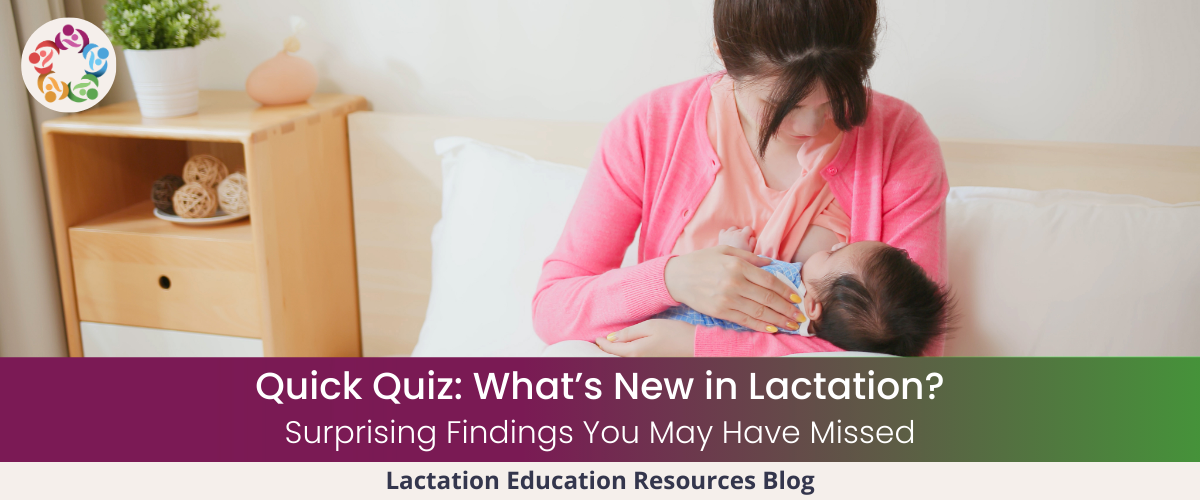Featured
Quick Quiz: What’s New in Lactation?


How up-to-date is your breastfeeding knowledge?
Lactation research is evolving faster than ever—and even experienced professionals can miss important updates that shift how we support families.
Take this quick quiz to see whether your clinical instincts match the latest evidence—each is based on a recent finding.
T or F? Breastfeeding can help prevent food allergies … but if there is a strong family history, it probably won’t help.
False! New evidence shows that the allergy-prevention effect of breastfeeding is the most pronounced in babies with a genetic predisposition.
Q: According to the Academy of Breastfeeding Medicine (ABM), what is the most common reason parents do not meet their breastfeeding goals?
A: According to a position statement released by the ABM, the answer is: Feeding commercial milk formula without a medical indication.
The ABM advises avoiding unnecessary supplementation, noting how supplementation with commercial milk formula disrupts natural nursing rhythms, and urges practitioners to address nursing difficulties first when an infant is not gaining weight appropriately.
T or F? It’s better if lactation care providers avoid offering parents who have experienced a pregnancy loss or stillbirth information about donating their milk, because doing so can trigger more grief.
False. Studies show that many parents who experience a loss wish they had been told about the option to express and donate their milk.
Q: A recent study has found that a parent’s lactation history affects their age of menopause onset. What is the effect?
A: Duration of lactation was associated with later onsets of menopause in a dose-response manner, with those lactating over 13 months achieving, on average, the latest menopausal ages.
T or F? Current theories posit that B-cell precursor acute lymphatic leukemia is present pre-birth—meaning human milk feeding is not helpful in preventing it.
False. New research shows that human milk feeding impedes pre-leukemia from developing into leukemia.
Keep Up to Date—The Easy Way
Surprised by a few answers? That’s exactly why we built our new course, Evidence in Action: What's New in Lactation 2025.
We’ve distilled the biggest recent advances into one practical, time-saving class. No deep-dive reading required—just clear insights you can bring straight to families, enriching the care you provide.
Enroll now to find out what’s new!
By accepting you will be accessing a service provided by a third-party external to https://www.lactationtraining.com/

